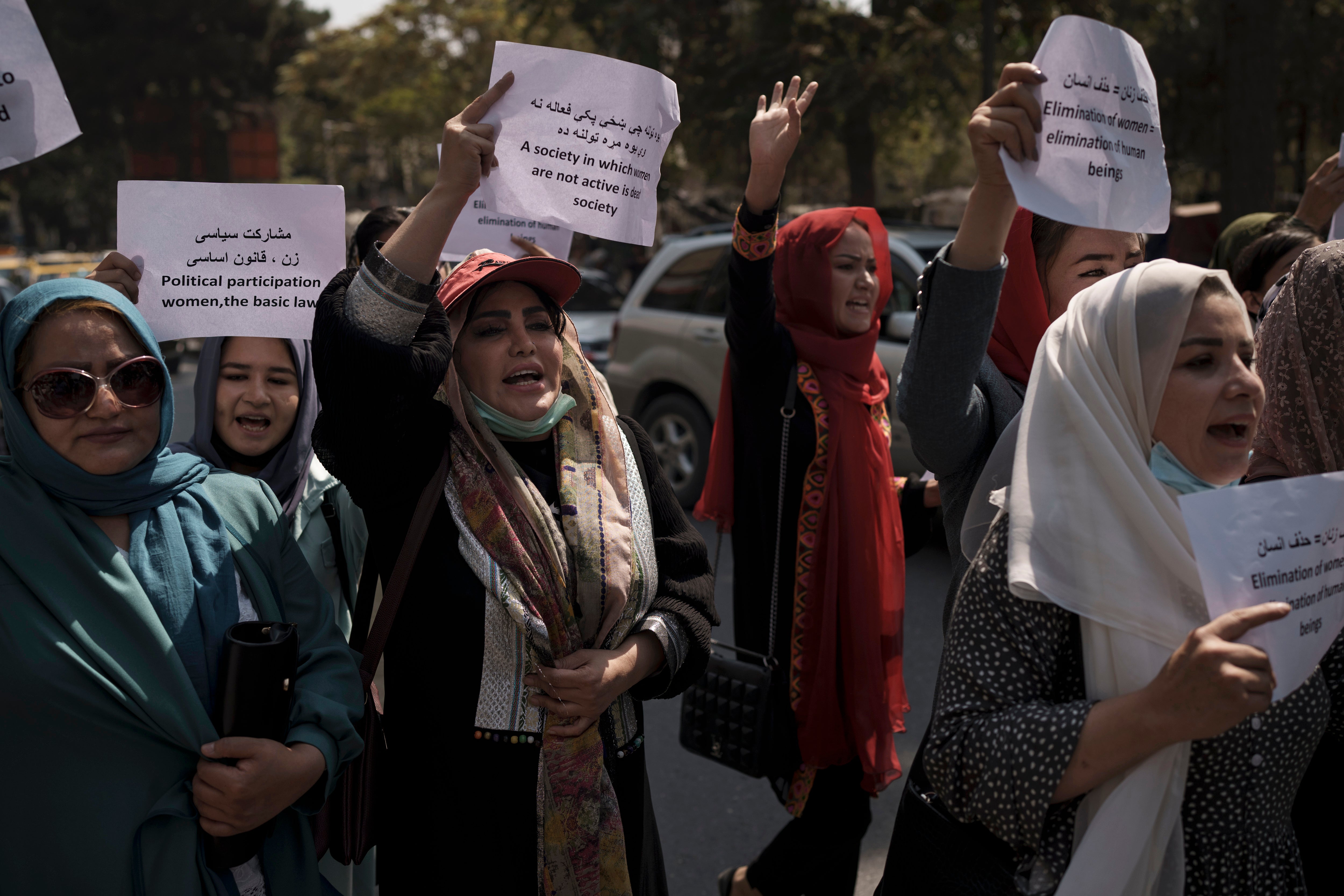It’s wishful thinking to believe in a more moderate Taliban – its renewed crackdown on women proves it
There is a danger that the Taliban’s vague promises on women’s rights were little more than a public relations strategy designed to woo the west, says Borzou Daragahi


In the space of a couple of days last week, the Taliban movement that has taken control of Afghanistan showed its true colours. With little by way of a formal announcement or transparent due process, the group’s enforcers all but abolished the Ministry of Women’s Affairs and handed its Kabul premises to the dreaded enforcers of virtue, the thuggish morality police who chastise, detain or beat women for wearing clothes deemed improper.
Then, Afghan boys were summoned back to secondary school while girls were not, in yet another ominous act that has dashed hopes for a Taliban that is more moderate than its incarnation in the late 1990s, when it previously ruled Afghanistan.
There is now a grave danger that the vague promises on women’s rights dangled by the Taliban in recent months were little more than a public relations strategy meant to lull world opinion and the United States government into acquiescing to its consolidation of power and coughing up aid money.
“There was a lot of wishful thinking in terms of what we thought was leverage,” says Heather Barr, associate director for women’s rights at Human Rights Watch. “One of a series of fairytales that the US has told itself is that we will have leverage because the Taliban need us. It’s not great to build your foreign policy on fairytales.”
In addition to closing a ministry dedicated to improving the lot of women and tossing its hundreds of employees out of work, the Taliban made other less public but also worrisome moves, including the barring of women from senior government positions.
There are also doubts about whether and under what circumstances women could attend university in Afghanistan, and warnings that they should not go to work because they might be mistreated by Taliban fighters.
Women journalists have disappeared from news organisations and questions loomed over whether women would be allowed to play sports. Earlier this month, women were beaten by Taliban enforcers while protesting for their rights.
“There’s a very long list and it’s pretty relentless,” says Barr, speaking on the phone from Islamabad. “Every day or so there’s some indication that there’s no Taliban 2.0.”
Taliban leaders have argued that the country can ill afford to allow demonstrations for women’s rights or a divisive debate about women’s role in society while they are still trying to stabilise the country following the collapse last month of the western-backed government.
But far-right authoritarian regimes have for decades sacrificed women’s rights for the sake of what they describe as “stability”. That is what appears to be happening in Afghanistan following the takeover of the country by the fundamentalist Taliban organisation. But what has been incredibly cynical is the willingness of the international community to embrace the Taliban regardless of its treatment of half the population.
Afghanistan’s neighbours including Pakistan, Iran, China, Turkey, Russia and even long-time Taliban foe India are practically tripping over each other trying to get into the good graces of Kabul’s new masters. Pakistan, which has a long and tangled relationship with the Taliban, has been blatantly shilling for the group, excusing its excesses, lest the country fall apart and become a haven for the very same terrorist networks the Taliban has regularly aligned with.
“You cannot impose women’s rights from abroad,” Pakistani prime minister Imran Khan said in an interview with CNN last week. “Rather than sitting here and thinking that we can control them, we should incentivise them.”
But the Taliban may have little incentive to change its ways on women when so many regional powers are so eager to do business with it. Many may also consider it insulting to trivialise women’s rights and suggest that the international community should try to bribe the Taliban to fulfill its own obligations. Afghanistan is a fully ratified member of the 1979 international treaty on women’s equality, which forbids “discrimination against women in all its forms” regardless of dubious worries about instability.
“What kind of stability is it where half the population is hiding inside their homes and has lost its rights,” says Barr. “To treat the issue of women’s rights as a minor detail that can be dealt with later is profoundly misogynist.”
There were many missteps during Afghanistan’s 20-year experiment in western-backed pluralism. But there was also much progress when it came to empowering women.
Some journalists in recent weeks have misguidedly argued that the advances in women’s rights came almost exclusively in the cities, at the expense of lost security for women in rural areas where the Taliban’s values are not so alien.
But that ignores the fact that it was those stretches either controlled or contested by the Taliban where women were held back. The delineation between urban and rural Afghanistan has also become far more murky over the last 20 years as the country’s road and communications networks have improved. Women in the cities often travel to their ancestral villages. Women in the countryside visit relatives or conduct business in the cities.
The US and its allies botched their 20-year attempt to help build a sustainable Afghan state in part because of failures to understand the country and listen to ordinary people. It’s important now that world powers do not repeat the same mistake by ignoring the voices of Afghan women.
Join our commenting forum
Join thought-provoking conversations, follow other Independent readers and see their replies
Comments
Bookmark popover
Removed from bookmarks